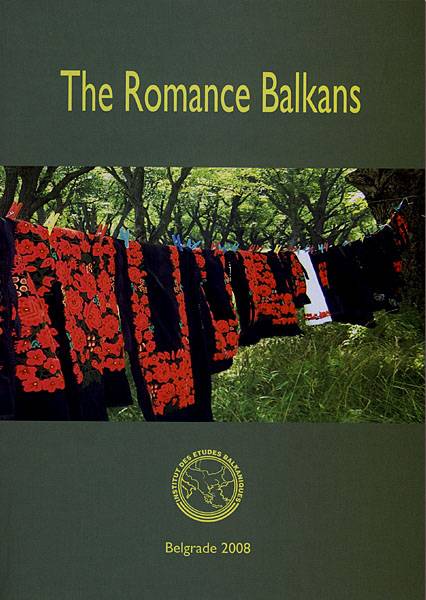News
The Romance Balkans

The edited volume entitled The Romance Balkans results from a conference held in Belgrade in November 2006. With its focus thus formulated by members of the Commission on Balkan Linguistics of the International Committee of Slavists, the conference assembled Romance linguists and Balkanologists concerned with various aspects of the Romance languages in the Balkans. Notwithstanding the attribute “Romance” in the title and the use of English, French and German as meta-languages, a connection with Slavic studies remains the common thread running through almost all contributions. From the current synchronic perspective, the present-day Romance Balkans includes (Daco-) Romanian, which is spoken in Romania and Moldova, as well as Aromanian and Megleno-Romanian vernaculars spoken in the southern Balkans. The volume expands this Romance extent to a maximum in taking into account not only different insular Daco-Romanian dialects but also Ladino and contemporary contacts between Balkan and non-Balkan Romance languages. The volume makes no pretensions to provide a diachronic cross-section through the “Balkan Romance languages” in a systematic way, or to offer an overview of the current state of European Balkan linguistics in methodological terms. Nevertheless, it does include Balkania Romana, Orthodoxa, Islamica and Judaica.
The book forms part of a series of thematic volumes concerned with marginal, ethically challenging or urgent issues in a broadly understood Balkan linguistics (Hidden Minorities in the Balkans, Belgrade 2004; Bayash in the Balkans, Belgrade 2005; Refugee Kosovo, Kragujevac 2004; Life in the Enclave, Kragujevac 2005; Torac. Fieldwork Methodology, Novi Sad 2006; and Kurban in the Balkans, Belgrade 2007), all resulting from the project “Ethnic and social stratification in the Balkans” carried out by the Institute for Balkan Studies.